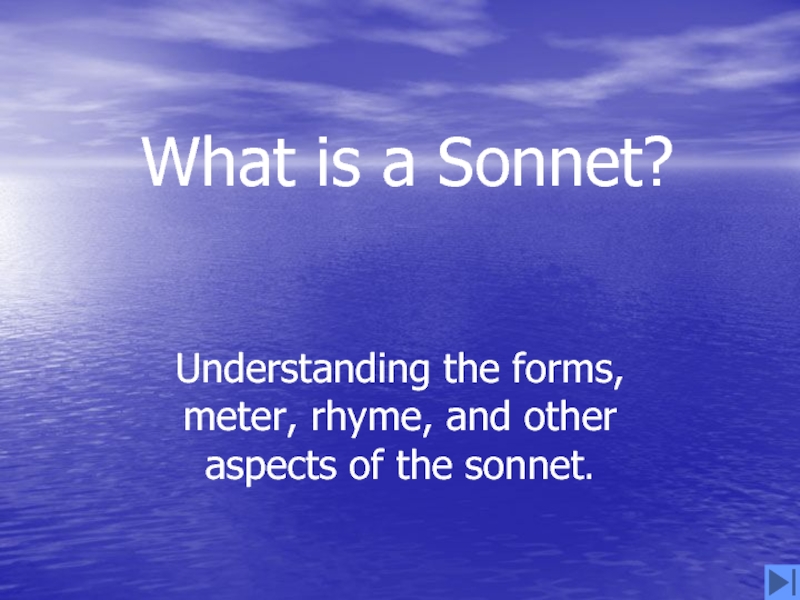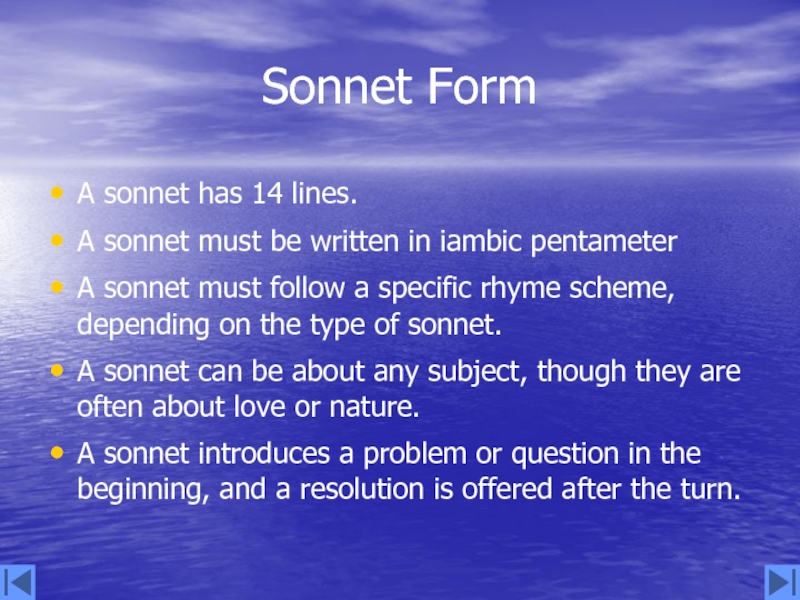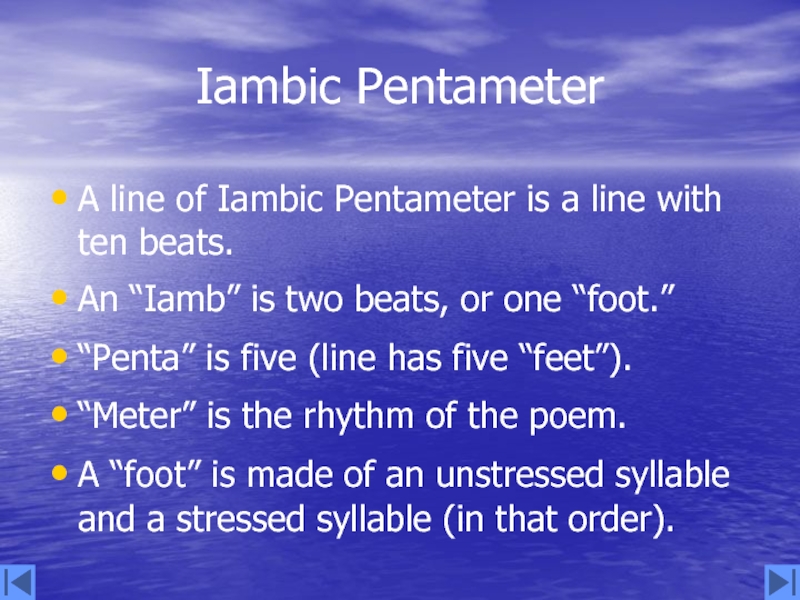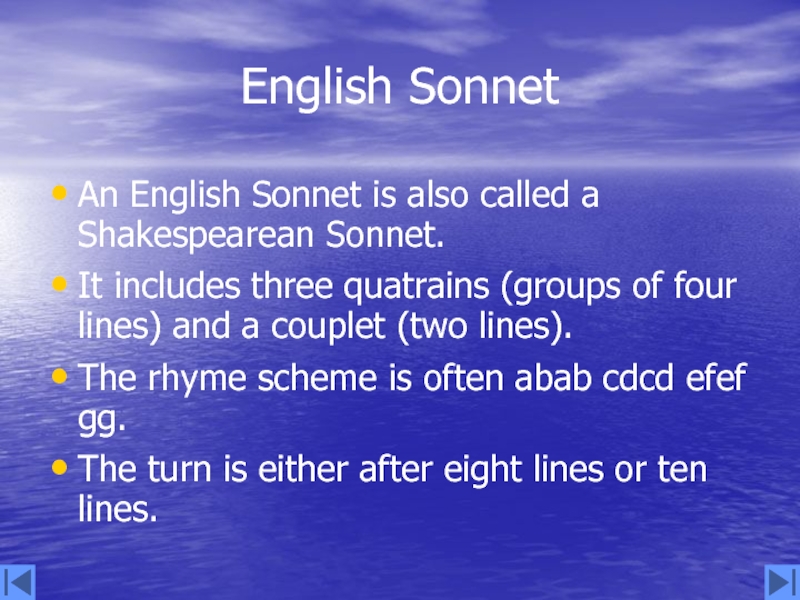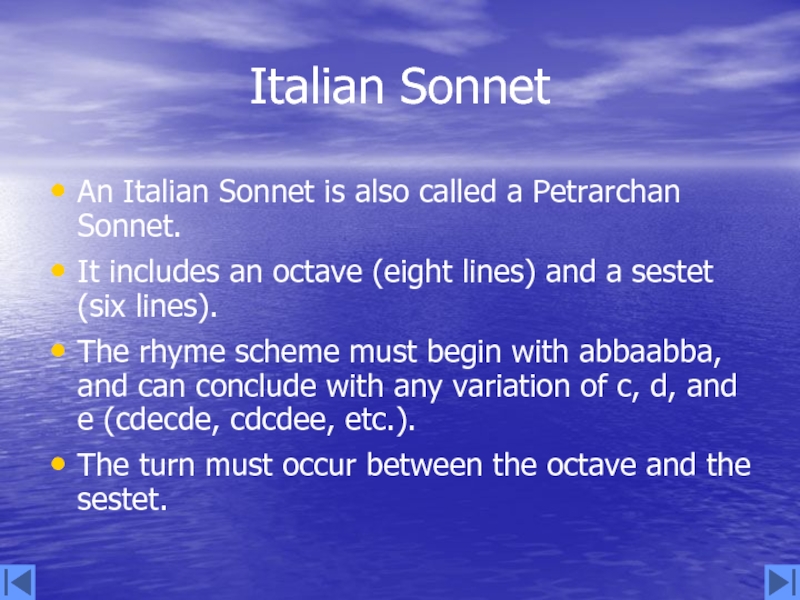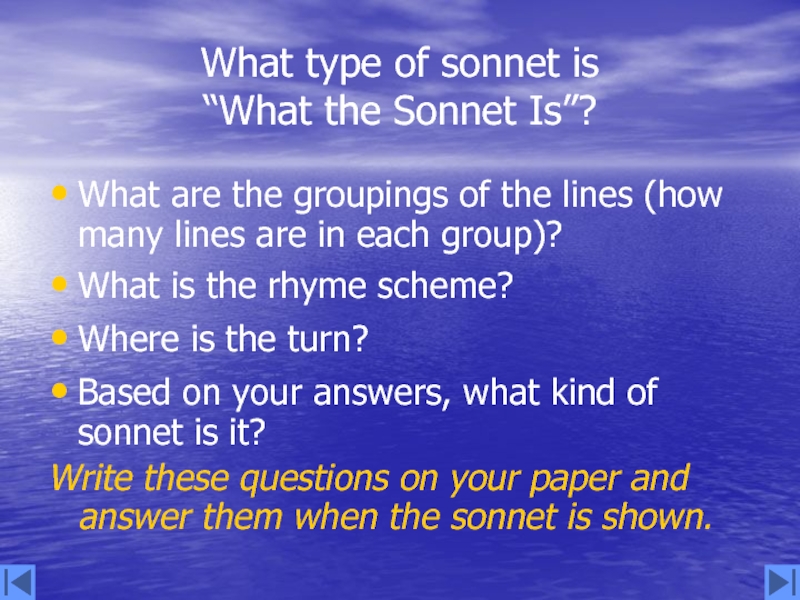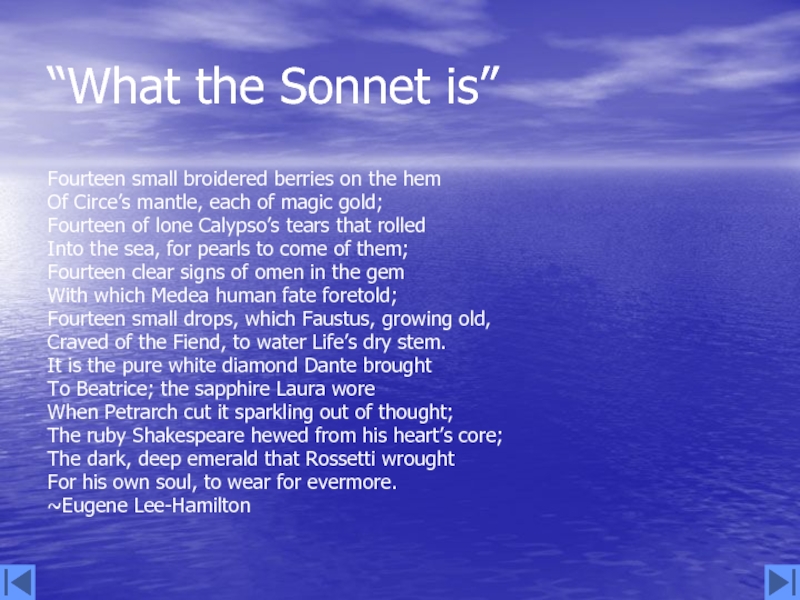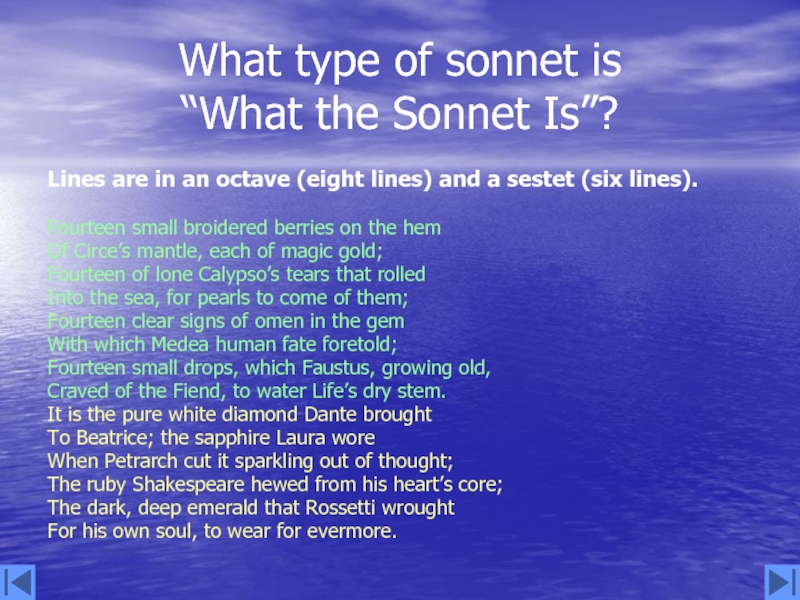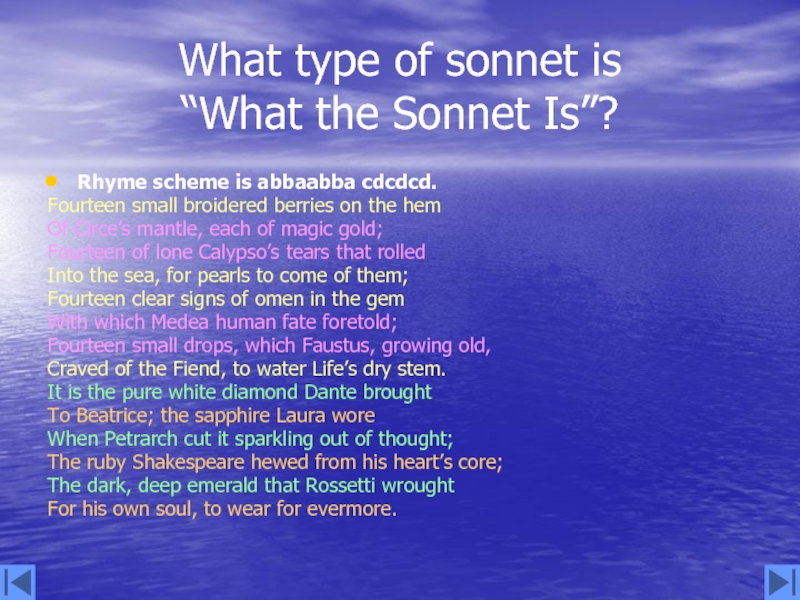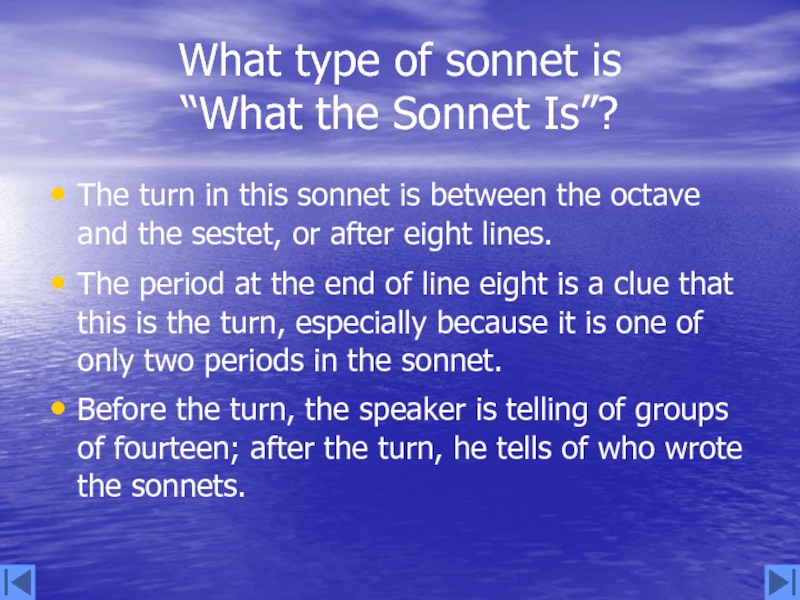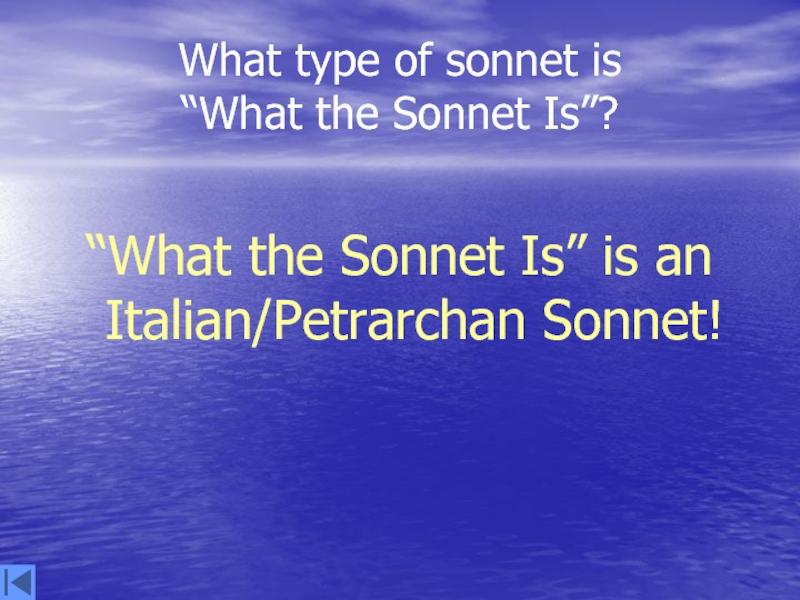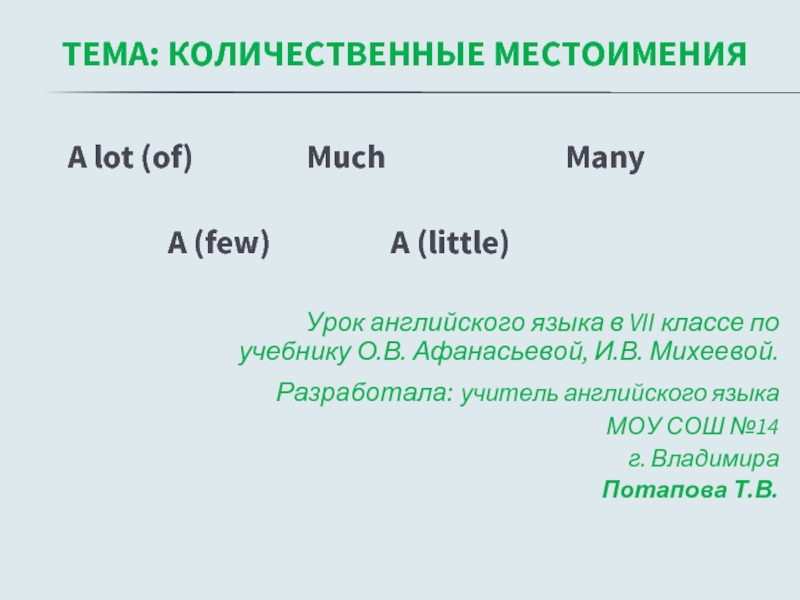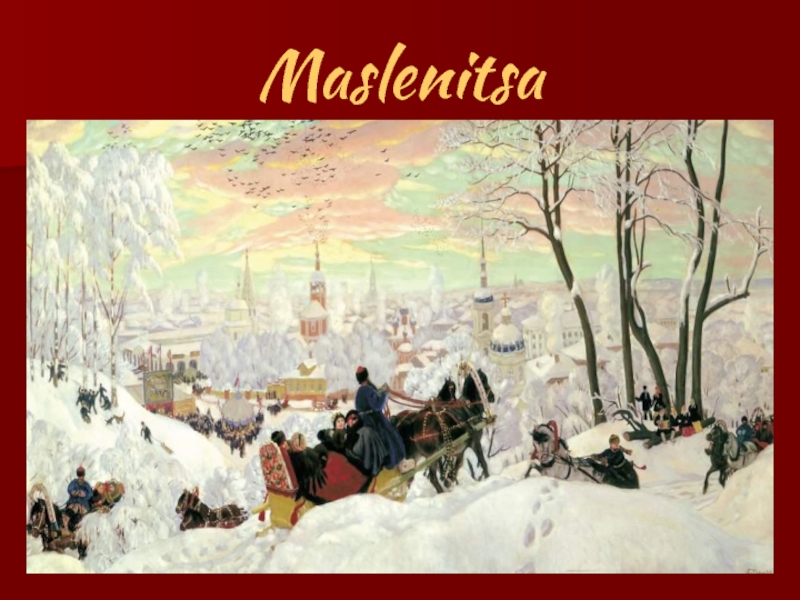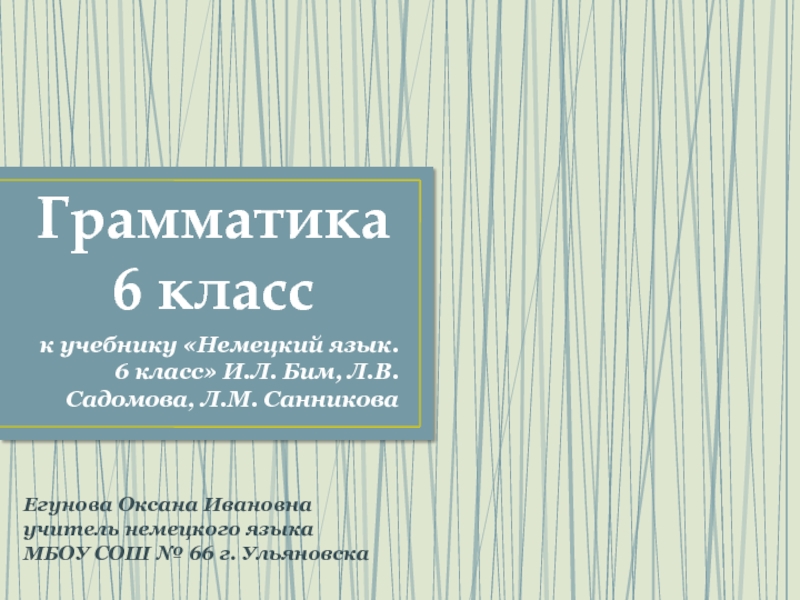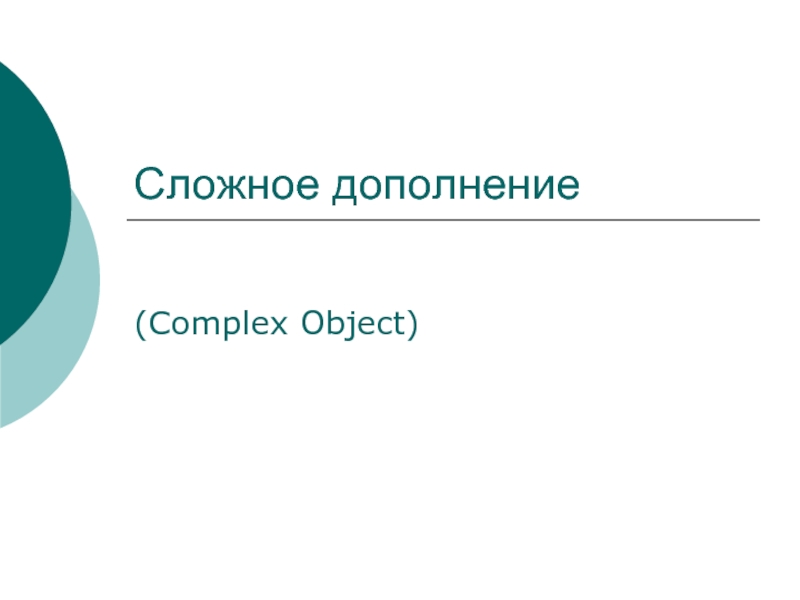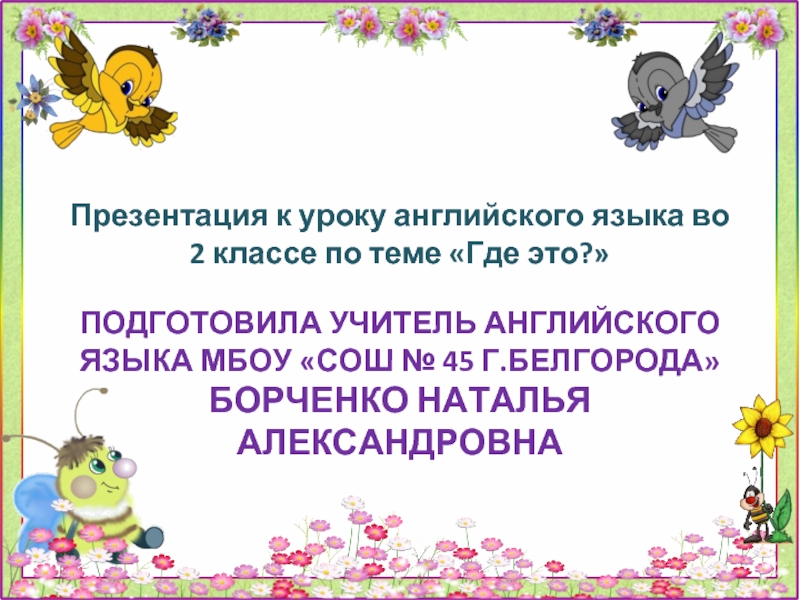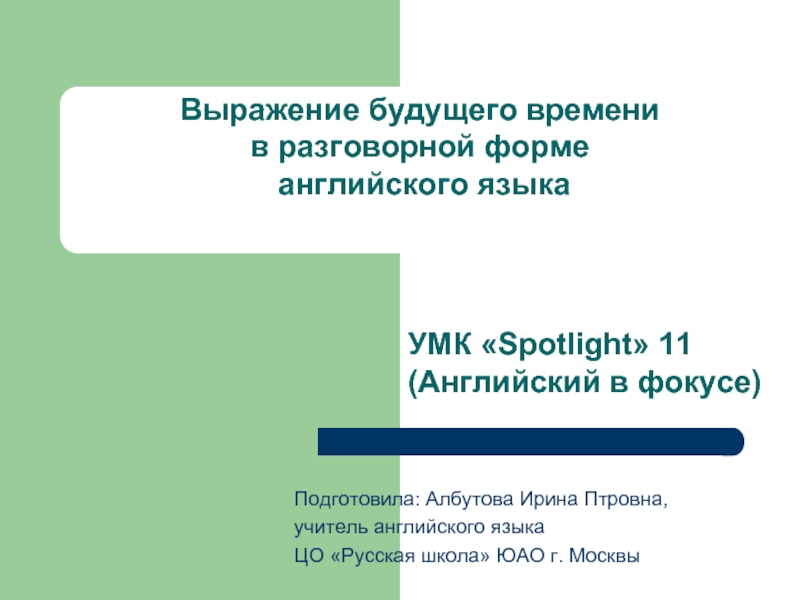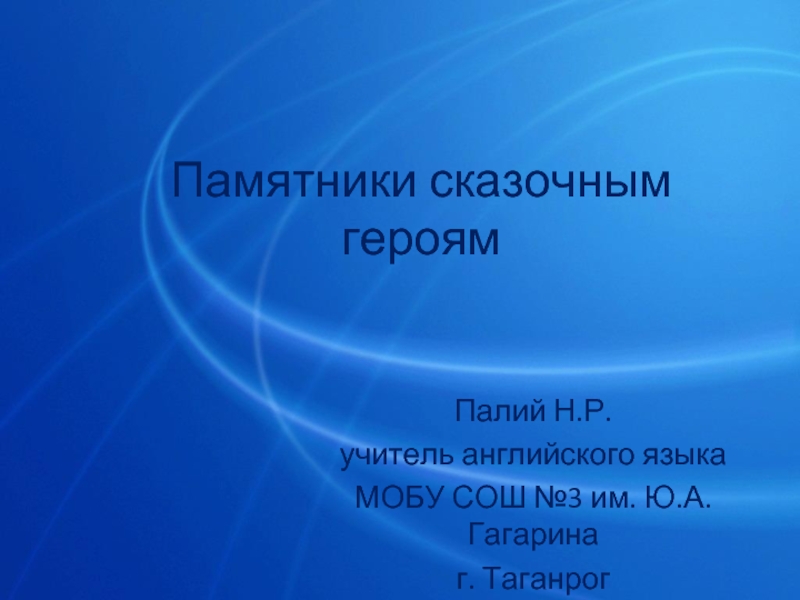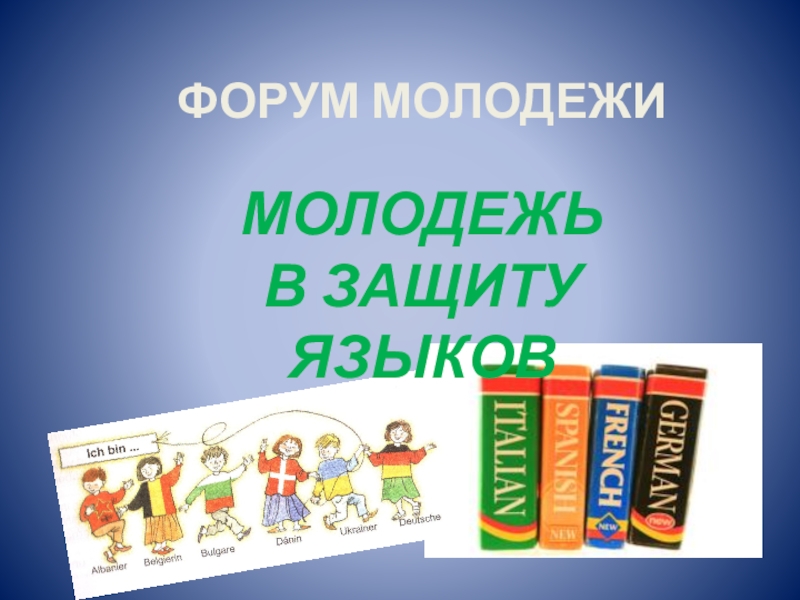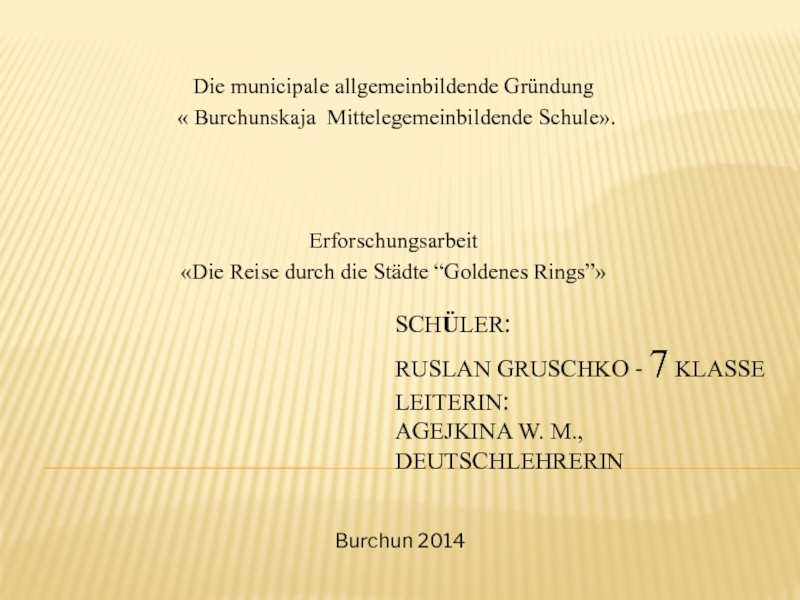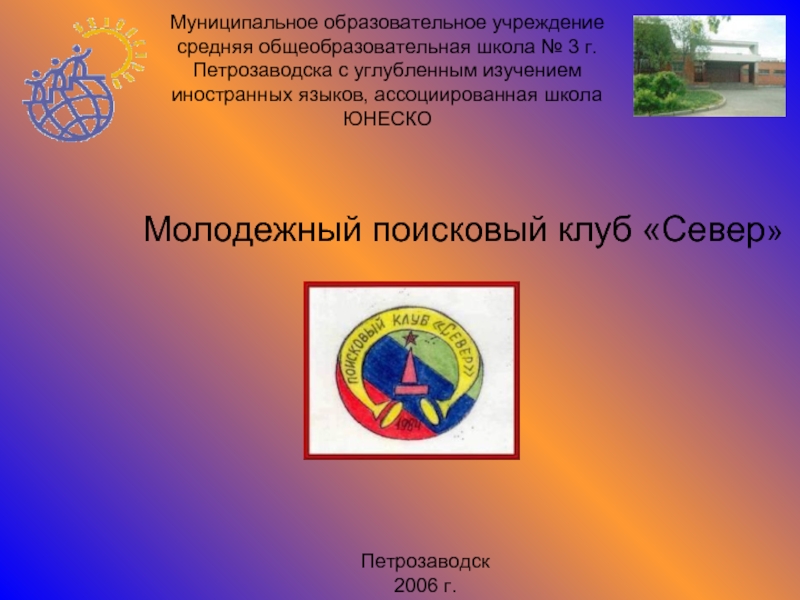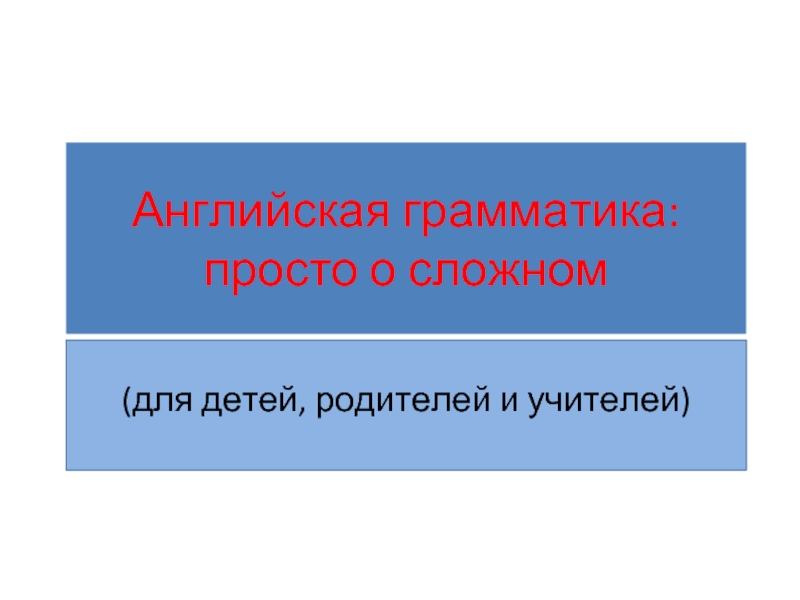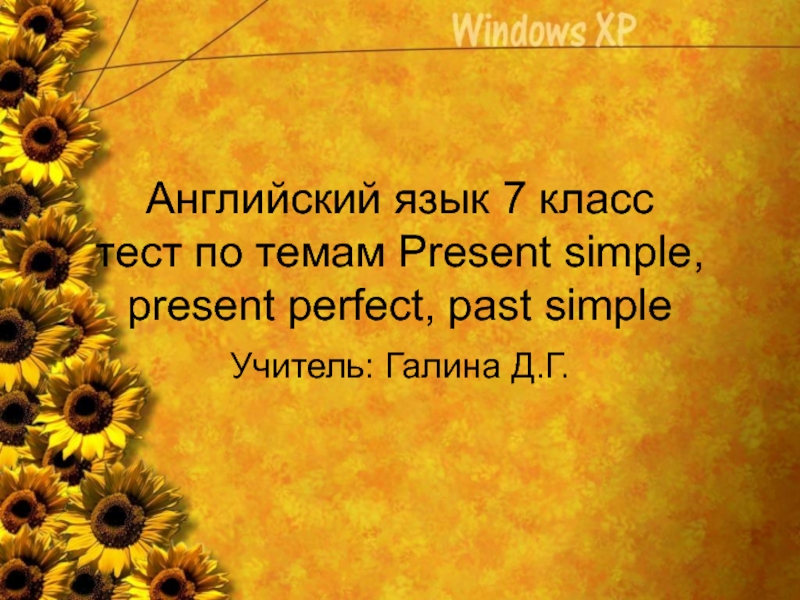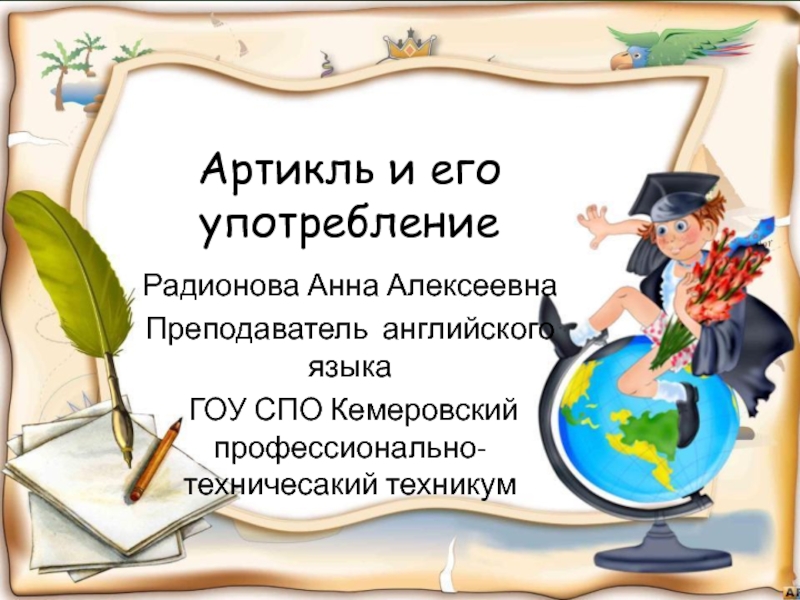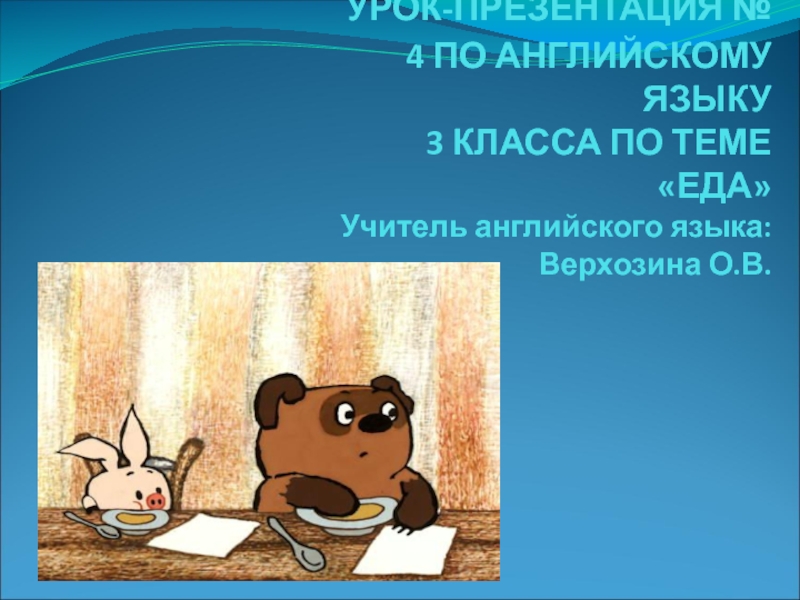Разделы презентаций
- Разное
- Английский язык
- Астрономия
- Алгебра
- Биология
- География
- Геометрия
- Детские презентации
- Информатика
- История
- Литература
- Математика
- Медицина
- Менеджмент
- Музыка
- МХК
- Немецкий язык
- ОБЖ
- Обществознание
- Окружающий мир
- Педагогика
- Русский язык
- Технология
- Физика
- Философия
- Химия
- Шаблоны, картинки для презентаций
- Экология
- Экономика
- Юриспруденция
Sonnet
Содержание
- 1. Sonnet
- 2. Sonnet FormA sonnet has 14 lines.A sonnet
- 3. Iambic PentameterA line of Iambic Pentameter is
- 4. English SonnetAn English Sonnet is also called
- 5. Italian SonnetAn Italian Sonnet is also called
- 6. What type of sonnet is “What
- 7. “What the Sonnet is”Fourteen small broidered berries
- 8. What type of sonnet is “What
- 9. What type of sonnet is “What
- 10. What type of sonnet is “What
- 11. What type of sonnet is “What
- 12. Скачать презентанцию
Sonnet FormA sonnet has 14 lines.A sonnet must be written in iambic pentameterA sonnet must follow a specific rhyme scheme, depending on the type of sonnet.A sonnet can be about any
Слайды и текст этой презентации
Слайд 2Sonnet Form
A sonnet has 14 lines.
A sonnet must be written
in iambic pentameter
A sonnet must follow a specific rhyme scheme,
depending on the type of sonnet.A sonnet can be about any subject, though they are often about love or nature.
A sonnet introduces a problem or question in the beginning, and a resolution is offered after the turn.
Слайд 3Iambic Pentameter
A line of Iambic Pentameter is a line with
ten beats.
An “Iamb” is two beats, or one “foot.”
“Penta” is
five (line has five “feet”).“Meter” is the rhythm of the poem.
A “foot” is made of an unstressed syllable and a stressed syllable (in that order).
Слайд 4English Sonnet
An English Sonnet is also called a Shakespearean Sonnet.
It
includes three quatrains (groups of four lines) and a couplet
(two lines).The rhyme scheme is often abab cdcd efef gg.
The turn is either after eight lines or ten lines.
Слайд 5Italian Sonnet
An Italian Sonnet is also called a Petrarchan Sonnet.
It
includes an octave (eight lines) and a sestet (six lines).
The
rhyme scheme must begin with abbaabba, and can conclude with any variation of c, d, and e (cdecde, cdcdee, etc.).The turn must occur between the octave and the sestet.
Слайд 6What type of sonnet is
“What the Sonnet Is”?
What are
the groupings of the lines (how many lines are in
each group)?What is the rhyme scheme?
Where is the turn?
Based on your answers, what kind of sonnet is it?
Write these questions on your paper and answer them when the sonnet is shown.
Слайд 7“What the Sonnet is”
Fourteen small broidered berries on the hem
Of
Circe’s mantle, each of magic gold;
Fourteen of lone Calypso’s tears
that rolledInto the sea, for pearls to come of them;
Fourteen clear signs of omen in the gem
With which Medea human fate foretold;
Fourteen small drops, which Faustus, growing old,
Craved of the Fiend, to water Life’s dry stem.
It is the pure white diamond Dante brought
To Beatrice; the sapphire Laura wore
When Petrarch cut it sparkling out of thought;
The ruby Shakespeare hewed from his heart’s core;
The dark, deep emerald that Rossetti wrought
For his own soul, to wear for evermore.
~Eugene Lee-Hamilton
Слайд 8What type of sonnet is
“What the Sonnet Is”?
Lines are
in an octave (eight lines) and a sestet (six lines).
Fourteen small broidered berries on the hem
Of Circe’s mantle, each of magic gold;
Fourteen of lone Calypso’s tears that rolled
Into the sea, for pearls to come of them;
Fourteen clear signs of omen in the gem
With which Medea human fate foretold;
Fourteen small drops, which Faustus, growing old,
Craved of the Fiend, to water Life’s dry stem.
It is the pure white diamond Dante brought
To Beatrice; the sapphire Laura wore
When Petrarch cut it sparkling out of thought;
The ruby Shakespeare hewed from his heart’s core;
The dark, deep emerald that Rossetti wrought
For his own soul, to wear for evermore.
Слайд 9What type of sonnet is
“What the Sonnet Is”?
Rhyme scheme
is abbaabba cdcdcd.
Fourteen small broidered berries on the hem
Of
Circe’s mantle, each of magic gold;Fourteen of lone Calypso’s tears that rolled
Into the sea, for pearls to come of them;
Fourteen clear signs of omen in the gem
With which Medea human fate foretold;
Fourteen small drops, which Faustus, growing old,
Craved of the Fiend, to water Life’s dry stem.
It is the pure white diamond Dante brought
To Beatrice; the sapphire Laura wore
When Petrarch cut it sparkling out of thought;
The ruby Shakespeare hewed from his heart’s core;
The dark, deep emerald that Rossetti wrought
For his own soul, to wear for evermore.
Слайд 10What type of sonnet is
“What the Sonnet Is”?
The turn
in this sonnet is between the octave and the sestet,
or after eight lines.The period at the end of line eight is a clue that this is the turn, especially because it is one of only two periods in the sonnet.
Before the turn, the speaker is telling of groups of fourteen; after the turn, he tells of who wrote the sonnets.
